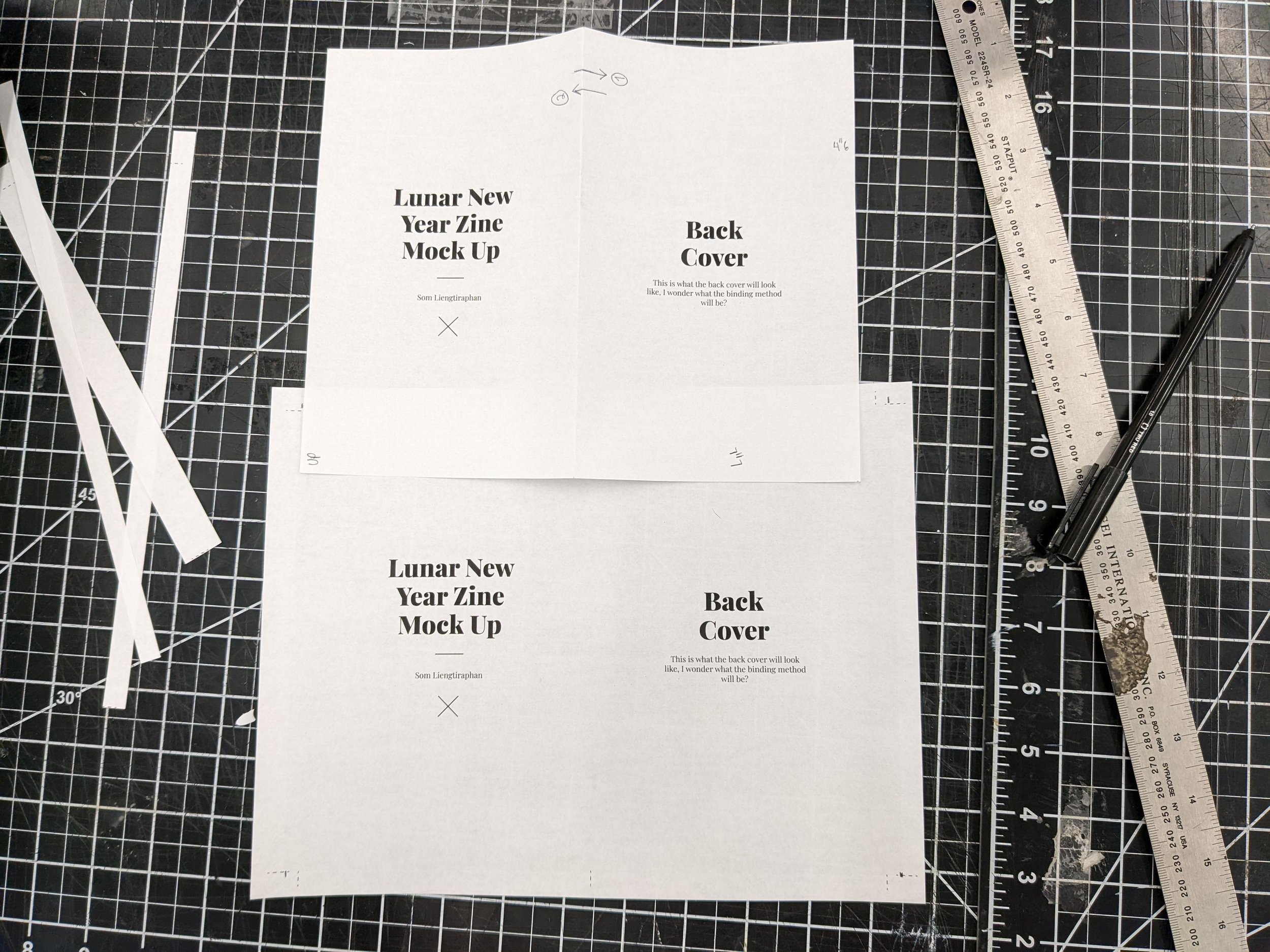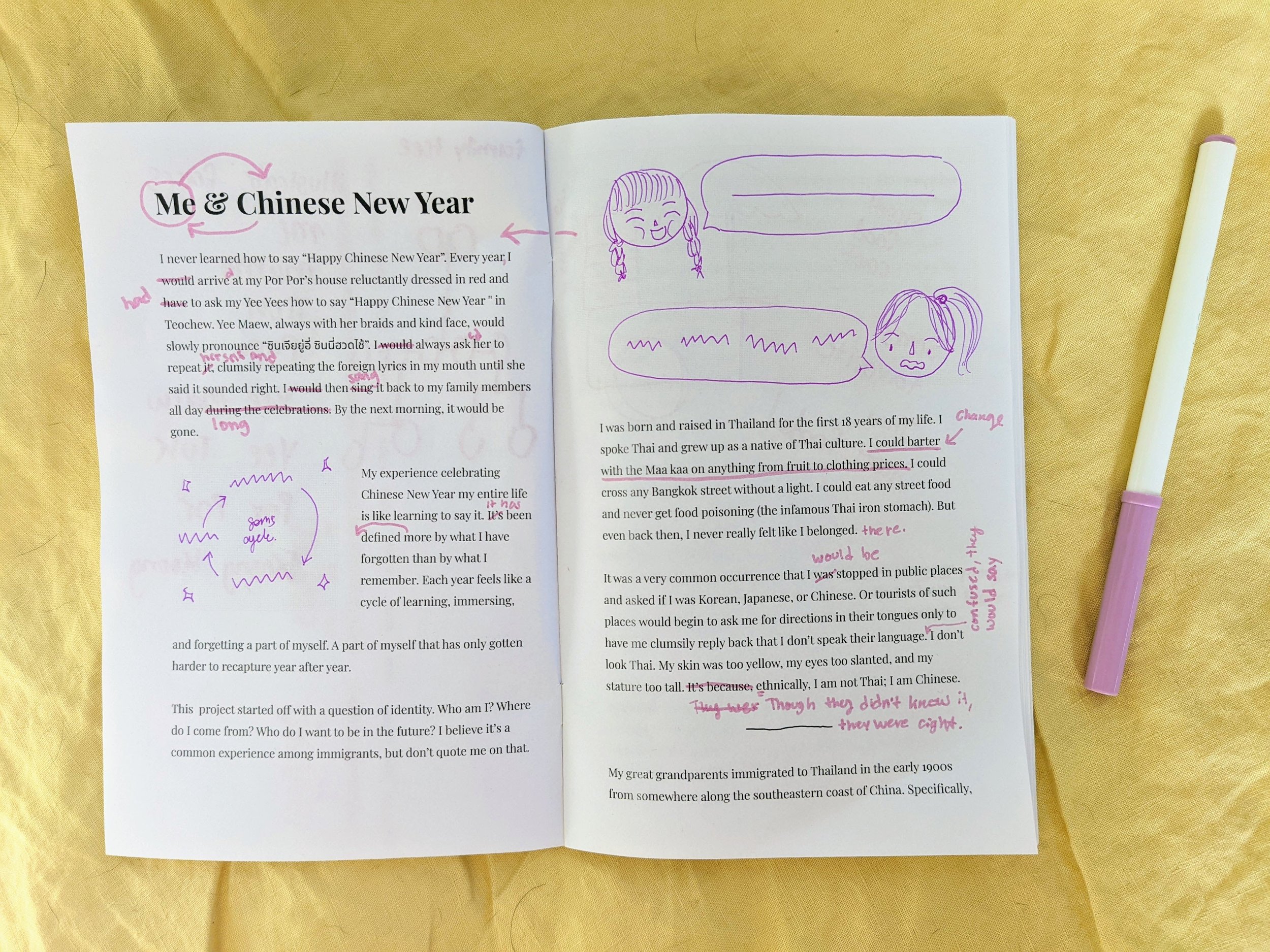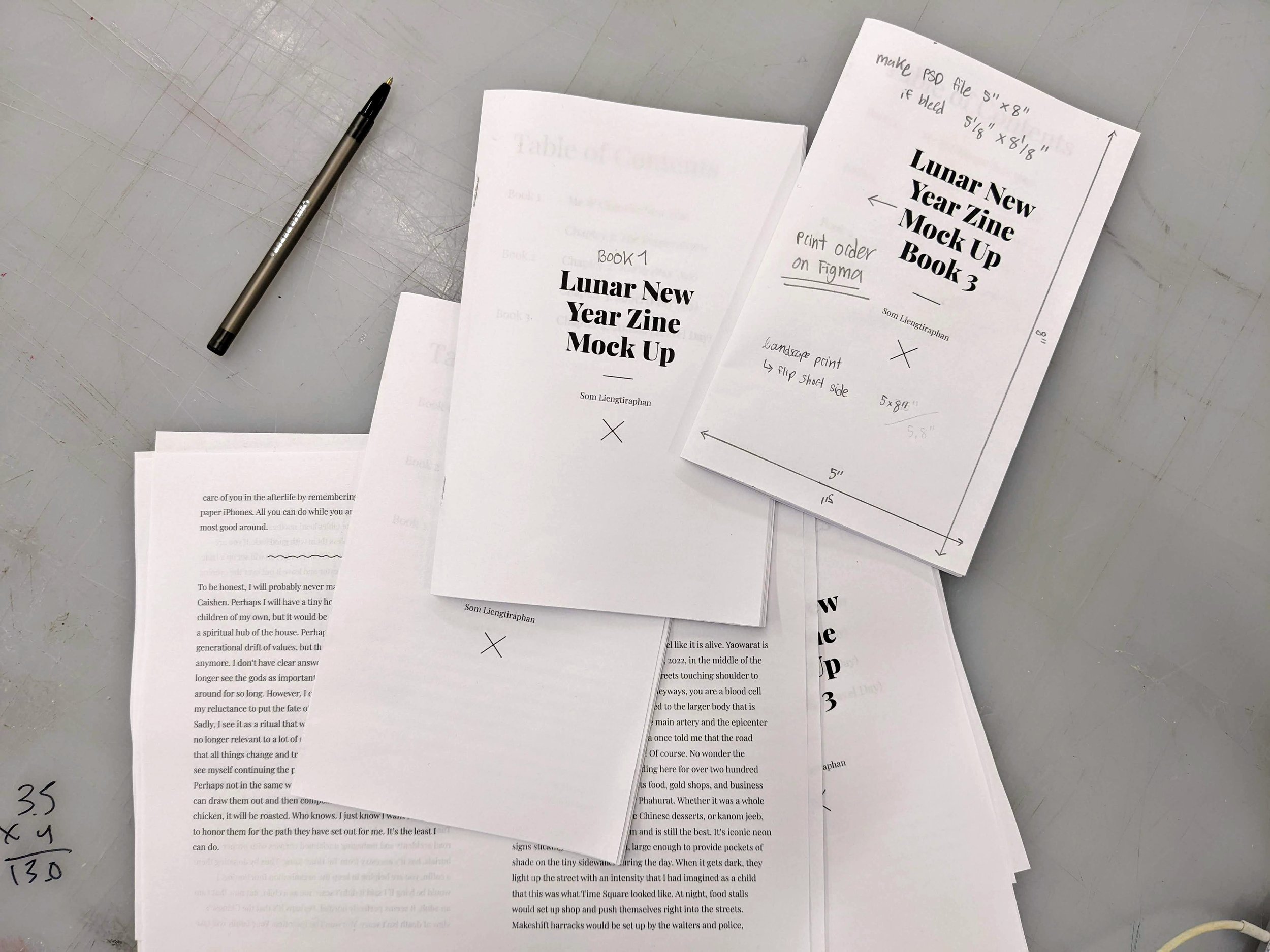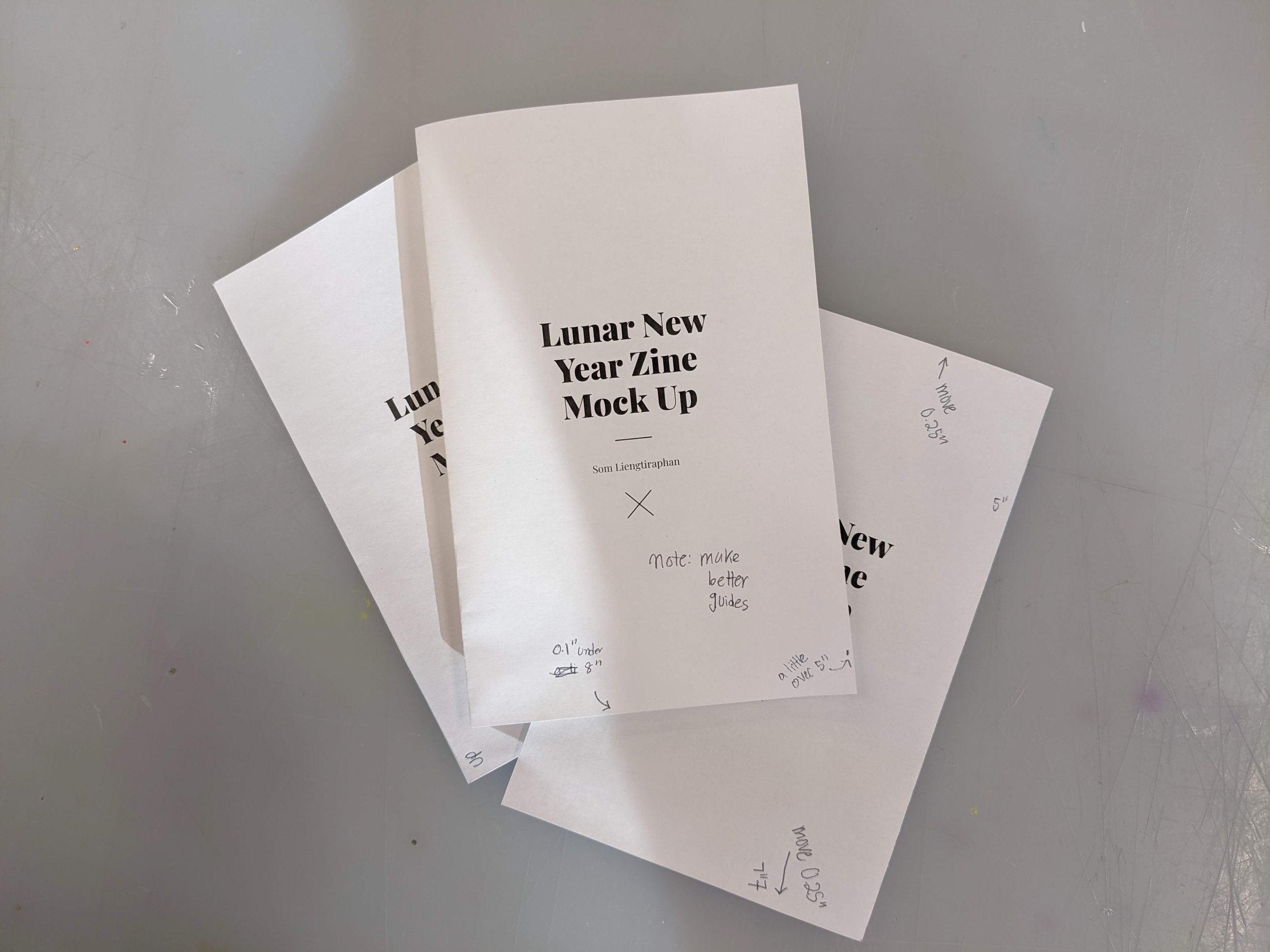Oranges for Good Luck
NYU M.S. Integrated Digital Media - Thesis Project
September 2021 - May 2022 (Continuing)
Risograph zines that offer people a glimpse into the diverse world of Thai-Chinese New Year celebrations and encourage people to reflect on how their family’s experience shape their cultural celebrations. Read my thesis on Proquest↗ or thesis as pdf↗
The zines are a part of a service design system that welcomes people — regardless of their identity or level of familiarity — into Chinese New Year celebrations and rituals. Through my zine, I encourage people to explore how their own personal identities have uniquely shaped their cultural celebrations, educate my audience about Thai-Chinese New Year rituals, and hope to inspire my audience to imagine how we might engage with both new and familiar rituals.
Tools
Procreate
Adobe Photoshop
Adobe InDesign
Adobe Illustrator
Figma
Risograph
Notion
Google Docs
Miro
Skills
Illustration
Graphic Design
Risograph Printing
User Research
Experience Design
Service Design
Team
Som Liengtiraphan (Illustrator, Designer, Writer, Researcher)
The Zine
A 3-part illustrated autoethnographic zine series about Thai-Chinese New Year celebrations
This zine contained my personal story of how my family celebrated Chinese New Year in Thailand. This provided a personal lens into the festival and offered the reader a window into the wide world and variations of Chinese New Year celebrations. The autoethnography series was segmented to reflect the official Chinese New Year celebration days we have in Thailand. Each section told the story of what happened during that phase of the celebration.
Research
The research for this autoethnography included interviews with family members, reading example autoethnographies, sketching reference images, and 3-months of writing.
I created an outline of the typical Thai-Chinese New Year celebrations, collected a quasi-encyclopedia of Chinese New Year rituals, and interviewed family members on how they remember celebrating Chinese New Year. These prepped materials were used to jog my memory of Chinese New Year so that I can try to write my autoethnography with the least interruptions.
I found writing my autoethnography was a therapeutic experience. I found myself naturally having tangents and doing small detours to explain the historical elements to provide background knowledge. Reflecting on the writing process gave me three thematic insights into my relationship, perception, and memory of my family’s celebration of Chinese New year. These 3 themes are the knowledge gap, outdated values, and disconnection. I made sure to include these in my writing.
Above: One of the illustrations I created for the zine that explains my family’s immigration path.
Process Summary
After writing the autoethnography, I made physical mockups and templates to streamline my illustration process.
I found creating physical mockups early helpful in practicing the creation process, determining the physical attributes and feel of the zine, and it made it easier to get feedback on the content from other people and allow me to annotate and storyboard right on the page. I also found making templates for the zine pages helpful as it narrowed down my responsibilities at a time and allowed me to focus on the content and illustrations. All planning for the illustration process was done on Notion.






















